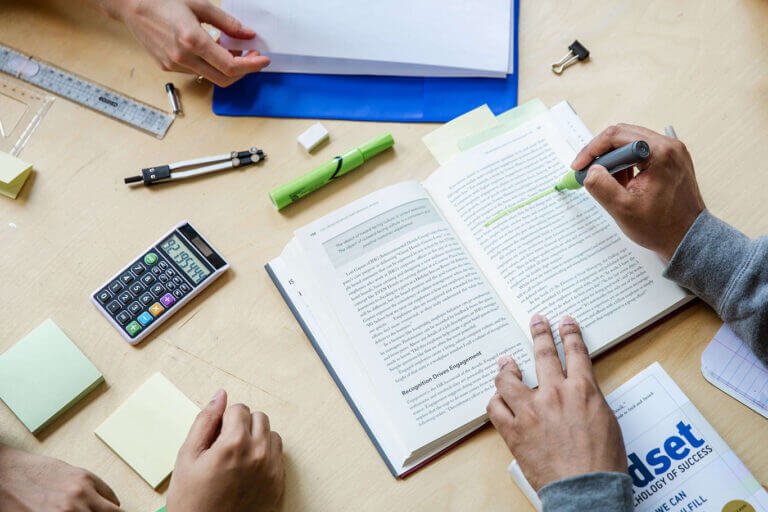Have you ever considered the similarities between gambling and language learning? At first glance, these two activities may seem unrelated, but recent studies suggest otherwise. Some experts have discovered a surprising connection between gambling and language learning that could help individuals improve their fluency in a foreign language. While it may sound unconventional, this relationship makes perfect sense when you think about it.
Both gambling and language learning requires an individual to take risks, make decisions based on incomplete information, and learn from mistakes. Additionally, both activities involve patterns and repetition – whether it’s memorizing vocabulary words or recognizing betting odds at a casino table.
So if you’re looking for a new way to enhance your second-language abilities while having some fun along the way, keep reading to discover how the worlds of gambling and linguistics intersect!
Table of Contents
The Similarities Between Gambling And Language Learning
Language acquisition can be likened to a gamble. You never quite know what you’ll get; chance primarily determines the outcome.
Like gambling, numerous factors come into play when learning a new language — some of which are entirely out of your control.
The role of chance in language learning cannot be overstated. It’s not just about studying hard or having a good teacher; countless variables can impact your progress.
From cultural differences to individual learning styles, all language learners have different experiences. And just like with any form of gambling, sometimes luck plays a massive role in determining whether or not you’ll succeed.
Risk-Taking And Decision-Making In Language Learning
Taking risks and making decisions is essential to gambling and language learning. In both activities, a certain level of uncertainty is involved, which requires individuals to take calculated risks to achieve their desired outcome.
Regarding language learning, risk-taking can be seen as the willingness to try new things, such as speaking with native speakers or attempting more challenging exercises. Similarly, decision-making is crucial in determining how well one progresses on the learning curve.
Motivation techniques are essential in encouraging learners to take risks and make informed decisions while studying foreign languages. For example, setting achievable goals and rewarding oneself upon completion can give learners a sense of accomplishment that motivates them to continue taking risks. Furthermore, incorporating different methods like games or quizzes into study sessions keeps learners engaged and makes the experience enjoyable.
By understanding these motivation techniques, language learners can develop effective strategies for overcoming obstacles encountered during their learning journey.
As we explore further connections between gambling and language learning, patterns and repetition emerge as vital elements in achieving success in either field.
Patterns And Repetition In Gambling And Language Learning
Memorization is critical to mastering any language, while recognizing patterns and repetition reinforces a learning habit.
Repetition and drills are essential strategies to help better understand language nuances and techniques like visualization, reflection, and reviews to help build familiarity and reinforce learning.
Memorization
Are you tired of using traditional flashcards to memorize new vocabulary or gambling strategies? Well, good news! There are alternative methods that can make the process more engaging and effective.
In both language learning and gambling, memory plays a crucial role in success. Learners and gamblers can increase their chances of retaining important information by utilizing memory techniques such as visualization, association, and repetition.
For example, instead of memorizing a list of words, try creating mental images to associate with each word or phrase. Similarly, when studying betting patterns in poker or blackjack, repeating them out loud or writing them down can help cement them into your memory.
These flashcard alternatives make the task at hand more enjoyable and promote better retention for long-term use.
Recognition
Now that we’ve explored the importance of memory techniques in language learning and gambling let’s delve into another crucial aspect: recognition.
In language learning, recognizing words and phrases is critical to understanding and communicating effectively. By exposing yourself to new vocabulary repeatedly through reading or listening exercises, you can begin to recognize these words in real-life situations.
Similarly, cognitive recognition plays a vital role in gambling strategy. Professional gamblers often rely on pattern recognition to identify advantageous betting opportunities during gameplay. By honing your ability to recognize patterns and repetition, both in language and gambling contexts, you’ll be able to improve your overall performance and achieve tremendous success.
The Benefits Of Combining Gambling And Language Learning
As we explored in the previous section, patterns and repetition play a significant role in gambling and language learning. But what if I told you that combining these two seemingly unrelated activities can have numerous benefits?
Let’s dive into how gambling can enhance your language-learning journey.
Firstly, role-playing games are an excellent way to practice speaking and listening skills in a foreign language. By immersing yourself in a simulated environment where communication is necessary to succeed, you’ll naturally pick up new words and phrases without realizing it.
Vocabulary bingo is another fun game to help improve memory retention of newly learned words. Plus, who knew practicing your language skills could be so entertaining?
- Role-playing games offer a low-pressure environment for language learners to practice speaking.
- Vocabulary bingo helps with memory retention of new words
- Combining entertainment with education makes language learning more enjoyable
- Gambling motivates to learn by offering rewards for progress made
By utilizing strategies such as role-playing games and vocabulary bingo while incorporating gambling elements like betting or prizes, language learners can experience increased motivation and enjoyment towards their studies.
So why add excitement to your next study session by trying one of these techniques? The possibilities for enhancing your language learning through gambling are endless!
Strategies For Enhancing Language Learning Through Gambling
Gambling can be an effective tool for enhancing language learning. One strategy is through Language Exchanges, where learners converse with native speakers while gambling. This helps learners practice their speaking and listening skills in a fun and engaging way.
Not only do they get to learn new vocabulary related to the game, but also idiomatic expressions unique to that particular culture. Another strategy is Vocabulary Building through playing games such as bingo or word search puzzles. These games force learners to actively recall words from memory and associate them with visual cues.
Moreover, it provides opportunities for repetition, solidifying memorizing new words over time. As a result, these activities make language acquisition more enjoyable and less daunting by creating an immersive experience that incorporates social engagement. Incorporating gambling into language learning fosters linguistic development and encourages cultural exchange and community building among players.
Thus, it is ideal for learners who want to improve their language skills without feeling overwhelmed by traditional methods like rote memorization or grammar exercises alone.
Frequently Asked Questions
What Are Some Common Gambling Games That Can Be Used To Enhance Language Learning?
If you want to enhance your language learning skills, incorporating gambling games could be a fun and effective way.
Role-playing exercises can help with conversation practice, while verb conjugation games can aid in grammar comprehension.
Classic gambling games that lend themselves well to language learning include blackjack, poker, and roulette.
For example, in blackjack, players must communicate with the dealer using specific phrases such as ‘hit’ or ‘stand.’ Similarly, players engage in conversation and negotiation in poker while practicing vocabulary related to card suits and rankings.
By gamifying language learning, students are more likely to stay engaged and motivated.
So why not try your luck at the language-learning table?
How Does The Brain Process Language Learning And Gambling Activities?
A brain is a fantastic tool that can adapt and change, just like a chameleon changes colors to blend in with its surroundings. Brain plasticity refers to the ability of the brain to make new neural connections and reorganize existing ones.
This is where gambling and language learning come into play— they share psychological similarities regarding learning strategies. As content writers/editors for this topic, we must engage our audience’s subconscious desire for understanding by using a simile or metaphor at the start of our writing.
Are There Any Potential Negative Effects Of Combining Gambling And Language Learning?
When it comes to combining gambling and language learning, potential risks and ethical considerations need to be considered.
While both activities can stimulate the brain’s reward system, leading to increased motivation and engagement, it’s essential to consider how this combination could affect individuals with addictive tendencies or those who may not have control over their spending habits.
Additionally, there is a responsibility to ensure that any materials used for language learning through gambling do not promote harmful stereotypes or perpetuate negative cultural narratives.
It’s crucial to approach this intersection of activities with caution and mindfulness to ensure a safe and positive experience for all learners.
Can Gambling Improve Language Proficiency, Or Is It Just A Fun Way To Practice?
Can gambling improve language proficiency, or is it just a fun practice method?
This question raises an interesting debate between benefits versus risks and perception versus reality. While some studies have shown that playing games of chance can enhance cognitive skills such as critical thinking, decision-making, and memory retention, others argue that this approach could turn addictive and lead to financial problems or addiction.
It’s essential to investigate the truth behind this theory before deciding whether to integrate gambling into your language learning routine. Ultimately, the goal should be to balance entertainment and education while staying aware of potential negative consequences.
How Can Educators Incorporate Gambling Activities Into Their Language Learning Curriculum?
Role-playing and game-based learning have become popular strategies for improving language proficiency.
Educators are now exploring incorporating gambling activities into their language learning curriculum to make it more engaging for students.
By using games like poker or blackjack that require communication and strategy, learners can practice speaking and listening skills in a fun way.
Role-playing scenarios can also be created where students act out situations such as ordering food at a restaurant or negotiating prices at a market.
The use of gambling elements provides an exciting twist to traditional classroom activities while also promoting language acquisition.
Conclusion
In conclusion, who would have thought that gambling and language learning could be a winning combination? Yet, research suggests incorporating popular games such as blackjack, poker, and roulette into language lessons can enhance vocabulary acquisition and improve overall proficiency.
While some may worry about the potential adverse effects of gambling activities on students, studies reveal that the brain processes language learning and gambling similarly.
Moreover, educators can take advantage of this connection by introducing fun and engaging activities that teach grammar rules and provide an opportunity to practice real-life communication skills.
So why not roll the dice and try something new? Whether you’re a student looking for a more exciting way to learn or an educator seeking innovative teaching methods, gambling-based language learning might be worth betting on.




